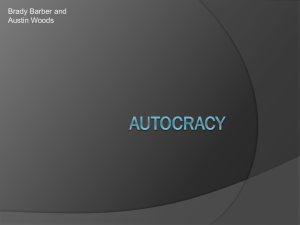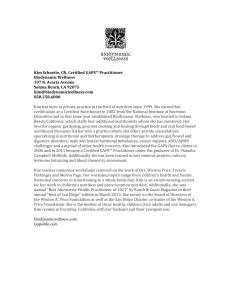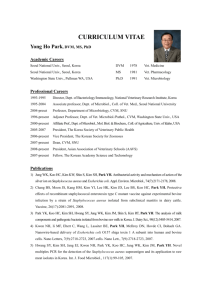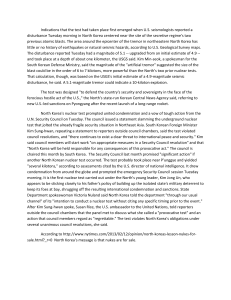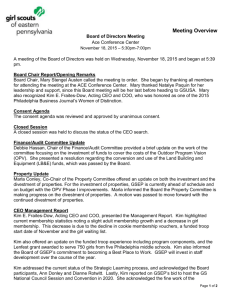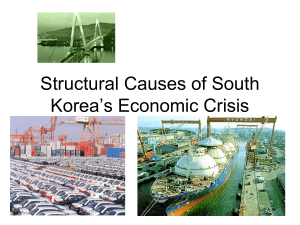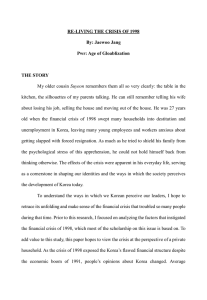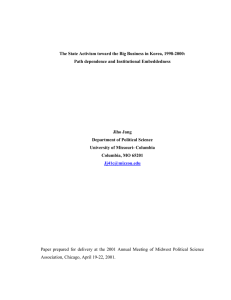Far Eastern Economic Review
advertisement
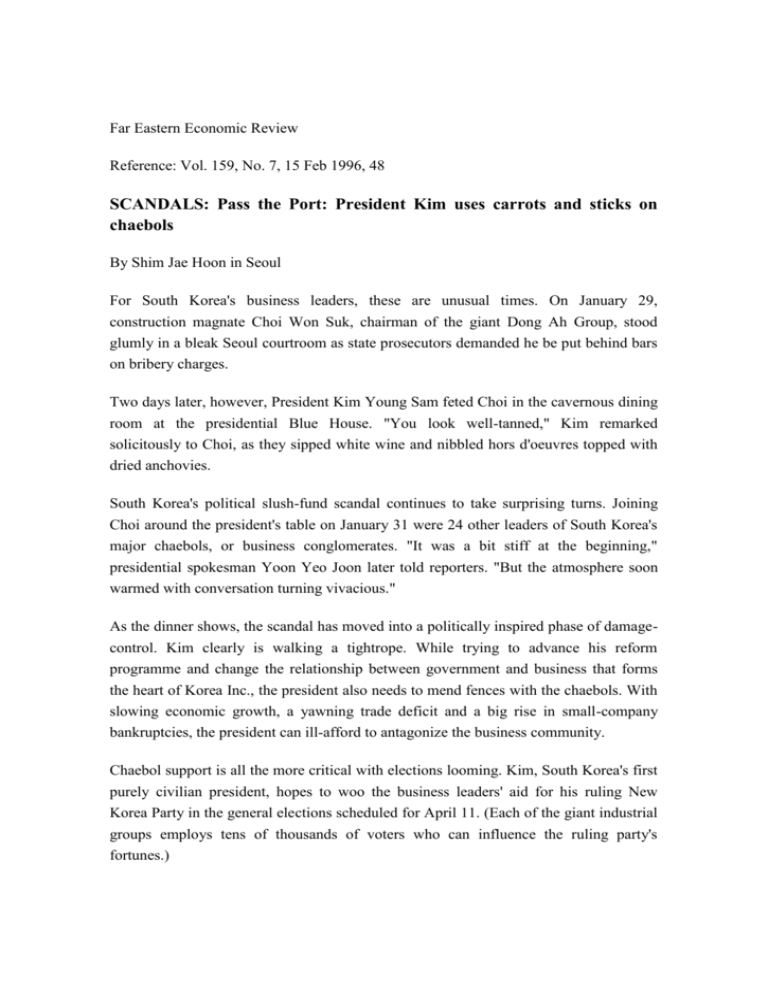
Far Eastern Economic Review Reference: Vol. 159, No. 7, 15 Feb 1996, 48 SCANDALS: Pass the Port: President Kim uses carrots and sticks on chaebols By Shim Jae Hoon in Seoul For South Korea's business leaders, these are unusual times. On January 29, construction magnate Choi Won Suk, chairman of the giant Dong Ah Group, stood glumly in a bleak Seoul courtroom as state prosecutors demanded he be put behind bars on bribery charges. Two days later, however, President Kim Young Sam feted Choi in the cavernous dining room at the presidential Blue House. "You look well-tanned," Kim remarked solicitously to Choi, as they sipped white wine and nibbled hors d'oeuvres topped with dried anchovies. South Korea's political slush-fund scandal continues to take surprising turns. Joining Choi around the president's table on January 31 were 24 other leaders of South Korea's major chaebols, or business conglomerates. "It was a bit stiff at the beginning," presidential spokesman Yoon Yeo Joon later told reporters. "But the atmosphere soon warmed with conversation turning vivacious." As the dinner shows, the scandal has moved into a politically inspired phase of damagecontrol. Kim clearly is walking a tightrope. While trying to advance his reform programme and change the relationship between government and business that forms the heart of Korea Inc., the president also needs to mend fences with the chaebols. With slowing economic growth, a yawning trade deficit and a big rise in small-company bankruptcies, the president can ill-afford to antagonize the business community. Chaebol support is all the more critical with elections looming. Kim, South Korea's first purely civilian president, hopes to woo the business leaders' aid for his ruling New Korea Party in the general elections scheduled for April 11. (Each of the giant industrial groups employs tens of thousands of voters who can influence the ruling party's fortunes.) The dinner also gave Kim a bully pulpit. As he feted the chaebol chiefs, he also pointed a finger at the corrupt business-government nexus that thrived for three decades under a succession of military-backed regimes. Clinking glasses with Lee Kun Hee, chairman of the Samsung Group, and Chung Mong Koo, the new chairman of the Hyundai Group, Kim told his guests: "Don't waste your time any more trying to see politicians or officials." As if they needed reminding. Just 48 hours earlier, state prosecutors had called for fouryear prison terms for Choi and Daewoo Group Chairman Kim Woo Choong. The men are charged with giving 15 billion won ($19 million) each to South Korea's former president, Roh Tae Woo. Last October, Roh unleashed the scandal when he declared that he had collected $650 million for a personal cash kitty during his term in office from 1988 to 1993. The emotional fallout from the scandal also is taking its toll on the chaebols. Prosecutors' probes have left the business community shocked and demoralized. At Hyundai Group, the nation's biggest conglomerate in terms of sales, honorary Chairman Chung Ju Yung and his brother, Chung Se Yung, announced their retirement and handed day-to-day management to Chung Mong Koo, 57, the son of group founder Chung Ju Yung. And at property developer Hanbo Group, which has interests in housing development and steelmaking, founder Chung Tae Soo has handed over management to his son Chung Bo Kun. Chung faces charges that he gave Roh 10 billion won. President Kim also is pressuring the captains of industry to co-exist more effectively with smaller businesses. He is asking them, for example, to try to curtail their market domination and to form more partnerships with small business. The chaebols seem to be taking some of his message to heart. Electronics and semiconductor giant Samsung Group, for instance, is setting up a training centre for small businessmen in Seoul to improve their management skills and upgrade their companies' technology. In addition, for the last 10 months, Samsung has been settling its bills with contractors in cash, not in six-month promissory notes, to help their cash flow. These efforts--described by Kim as a top priority--are spreading to other groups such as Hyundai and Daewoo. Publicly, at least, the chaebol chiefs are cheering Kim on. "Go on with your will for reform and keep on deregulating," Halla Group Chairman Chung In Yung told Kim. "There are too many regulations here making it difficult to do business, and countries with too many regulations are bound to have corruption." To be sure, many of Kim's proposed changes are largely cosmetic. They don't even come close to addressing more fundamental issues of the chaebols' family ownership and the extent of their control over the economy. Still, the government is making some progress. In March, it launched the Small Business Administration--a government office to promote small-business development. It has also said it will bring about policy changes to make it easier for small businesses to get bank loans. For their part, the chaebols agree that the rampant corruption that has characterized the governmentbusiness nexus must go. However, old thinking dies hard. "Doing business means sometimes you have to walk into the mud, dirtying your boots," says a senior chaebol executive who declines to be named. "It's not like running a charity."


